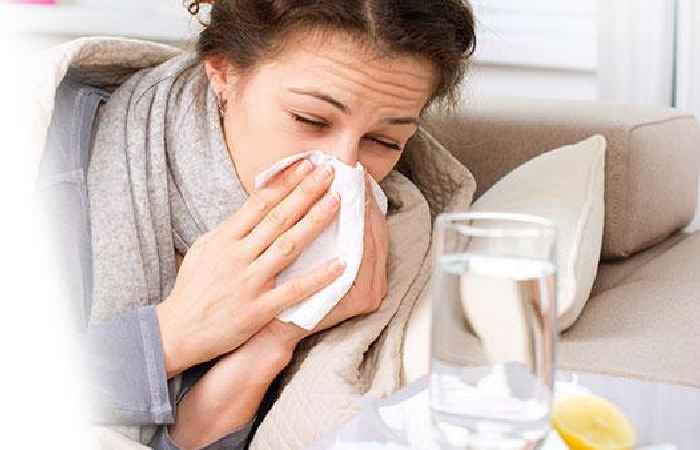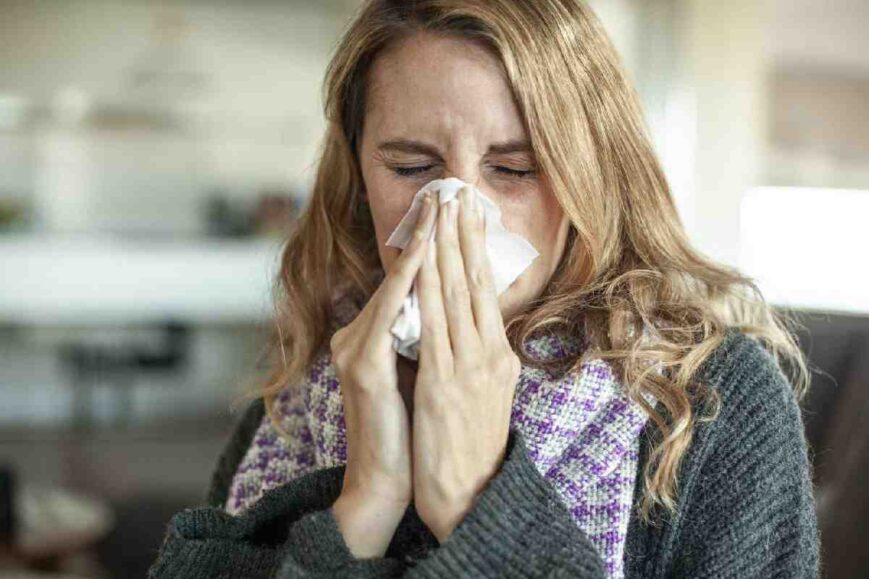Signs Your Cold is Getting Better – Colds usually disappear within a week, but you may also experience thirst, cough, and runny nose. Your flu will improve if you have more energy and fewer symptoms.
The flu is usually a mild illness that lasts about a week. Cold symptoms include:
- Cough
- Sore throat
- Sneezing
- Runny nose
- Congestion
- Fatigue
- Pain
These symptoms are usually mild. A severe cold lasts about 3 to 5 days. You may also have a runny or stuffy nose. By the last few days of the flu, most of your symptoms will have disappeared and your energy levels will have returned. You may also have a runny or stuffy nose.
This article closely examines symptoms that signal your cold is almost over.
What are the symptoms that indicate your cold is almost over?

The flu usually goes away within a week. Many people notice that symptoms begin to ease between days 7 and 10 of the flu. Today, you may find that you have more energy and that it seems easier to work, go to school, and complete daily tasks. These may include:
- Sinusitis
- Nasal congestion
- Cough
Sinusitis and nasal congestion can last up to 14 days, and the cough may last for two to three weeks. During the last few days of the flu, your nasal passages may appear yellow or green. This is because your body is immune to the flu.
What are the stages of most colds, and how long does each stage last?
There are several stages of a cold. People experience different symptoms at each stage, and some stages can feel more severe than others. For example, it’s more common to feel unwell at Stage 2 than at Stage 1 or 3.
Stage 1
Symptoms at this stage are usually mild, and most people report a sore throat. You may also experience:
- Weakness
- Mild congestion
- Rough runny nose
Stage 2
Symptoms usually get worse on Day 3 to Day 5; this is also called Stage 2. This is usually when you feel the most uncomfortable. The second stage of the flu usually includes the following symptoms:
- Congestion
- Runny nose
- Body aches
- Headache
- Sneezing
- Cough
Stage 3
Symptoms start to improve after about a week. This is the third stage. Stage three symptoms usually include cough, congestion, and runny nose.
Does blowing your nose help get rid of a cold?
Blowing your nose can help relieve some symptoms. It can make breathing easier and help you feel less congested. However, it won’t cool you down faster. Blowing your nose excessively and repeatedly can cause your nose to become irritated, sore, and uncomfortable.
Blowing your nose forcefully can cause nosebleeds, ruptured eardrums, and other injuries.
What can you do to ease symptoms of a common cold?
Usually, the best way to get rid of a cold at home is to relax and take some home remedies.
- Suck on lozenges to relieve a sore throat and cough
- Over-the-counter (OTC) cough and cold medicine to relieve cough and fever
- Use saltwater drops and nasal sprays to relieve congestion
- Over-the-counter pain relievers, such as ibuprofen, to relieve pain
- Drink warm water that soothes your throat, such as honey tea
- Take a warm bath or shower. The steam can help clear your sinuses
- Use a humidifier to help unclog your nose
Do you need to see a doctor for a cold?
Most of the time, you don’t need to see a doctor for the flu. The flu is caused by a virus. This means it can’t be treated with antibiotics. Most flu symptoms are mild, so home treatment is usually best. But sometimes it’s a good idea to see your doctor if It’s not getting better
- You have a fever for more than 4 days
- Over-the-counter medications aren’t working
- Your symptoms go away and come back
- All of your symptoms are severe or unusual
- You’re dehydrated
Any of the above could be signs that your cold is getting more serious
Final Thought
Signs Your Cold is Getting Better – Colds usually disappear within a week. Your symptoms will usually start to improve by day 7. You may still have a runny nose, congestion, and cough. These symptoms may last a few weeks longer than other flu symptoms. You may find that routine tasks become easier. Resting, taking over-the-counter medications, and using heat and steam to soothe your throat or open your nose may help relieve your symptoms. It is best to see a doctor.


